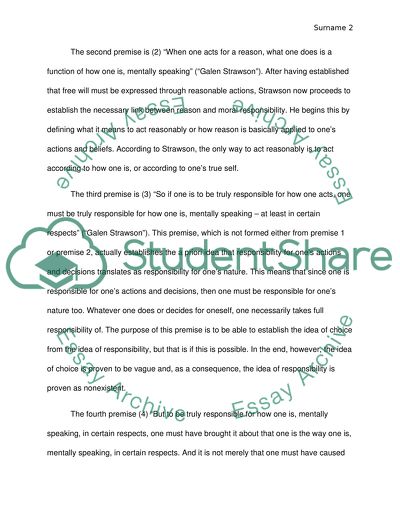Cite this document
(“Galen Strawson and The impossibility of Moral Responsibility Essay”, n.d.)
Retrieved from https://studentshare.org/psychology/1398445-final-paper
Retrieved from https://studentshare.org/psychology/1398445-final-paper
(Galen Strawson and The Impossibility of Moral Responsibility Essay)
https://studentshare.org/psychology/1398445-final-paper.
https://studentshare.org/psychology/1398445-final-paper.
“Galen Strawson and The Impossibility of Moral Responsibility Essay”, n.d. https://studentshare.org/psychology/1398445-final-paper.


